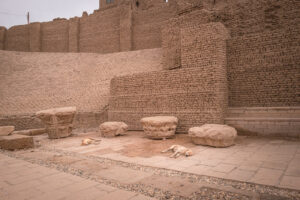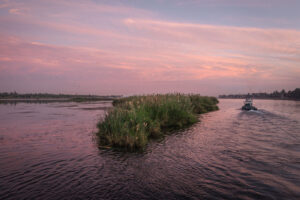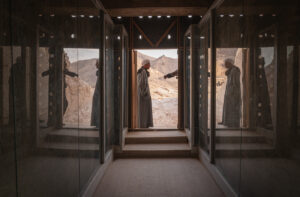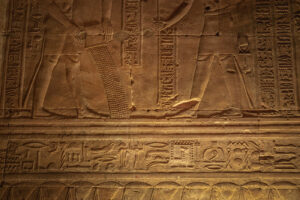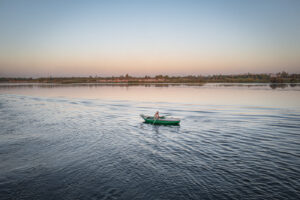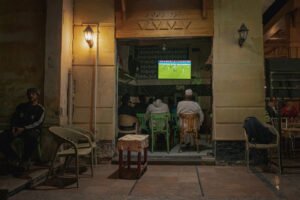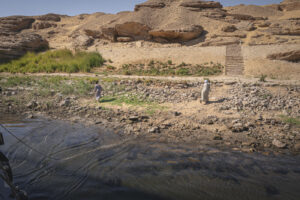RIVER NILE RIVER
El-Bahr, the Nile is the quintessential river, the longest in the world, between its being deity and the only means of communication to overcome the desert. Herodotus, in the fifth century BC, had called Egypt a gift of the Nile, for its extraordinary importance in the life and culture of the Egyptian people. Even today, 95% of Egyptians live near its banks, along which nature and signs of an ancient and modern humanity are mixed: pastel-colored landscapes, large palaces that are out of tune with the surrounding environment and are reflected in its waters, fires that warm the sky as the sun goes down, old abandoned boats that open the way to the swamp. And stories of life. Traveling aboard a dahabiya, a sailing boat that in the absence of wind is towed by a tugboat, you can see a split of life in cozy houses, in their simple desire for redemption, modern weddings and evenings out of time. On her journey the dahabiya sails slowly and docks only at night, clings to the shore with ancient ropes, abandoning herself to the time and rhythms of a people who celebrated the sacredness of the Nile.
RIVER NILE RIVER
El-Bahr, il Nilo è il fiume per antonomasia, il più lungo al mondo, tra il suo essere divinità e l’unica via di comunicazione per superare il deserto. Erodoto, nel V secolo a.C., aveva definito l’Egitto un dono del Nilo, per la sua straordinaria importanza nella vita e nella cultura del popolo egizio. Ancora oggi il 95 per cento degli egiziani vive vicino alle sue rive, lungo cui si mescolano natura e segni di un’umanità antica e moderna: paesaggi color pastello, grandi palazzi che stonano con l’ambiente circostante e si specchiano nelle sue acque, fuochi che scaldano il cielo al calar del sole, vecchie imbarcazioni abbandonate che aprono la via verso la palude. E storie di vita. Viaggiando a bordo di una dahabiya, un’imbarcazione a vela che in assenza di vento viene trainata da un rimorchiatore, si scorgono spaccati di vita in case accoglienti, nella loro semplice voglia di riscatto, matrimoni moderni e serate fuori dal tempo. Nel suo viaggio la dahabiya naviga lentamente e attracca solo di notte, si aggrappa alla riva con corde antiche, abbandonandosi al tempo e ai ritmi di un popolo che celebrava la sacralità del Nilo.



